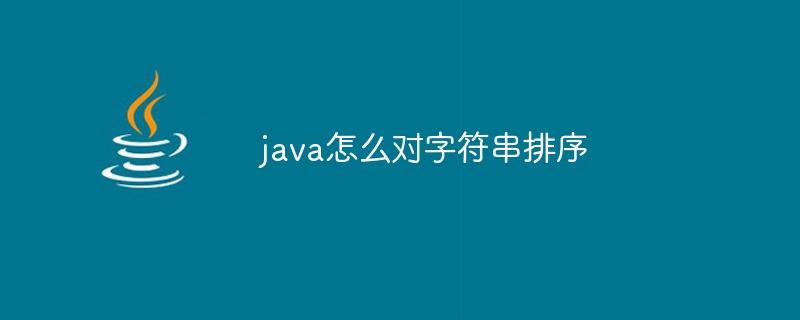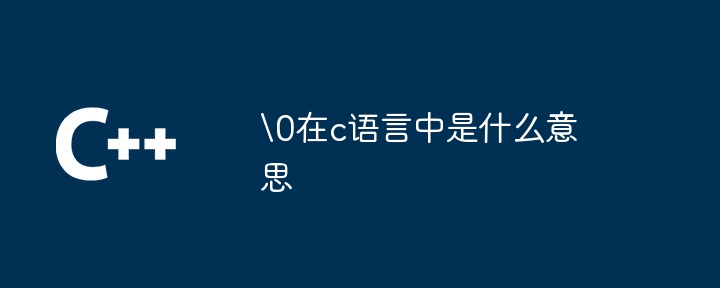args stands for command line arguments in Java and is an array of strings containing the list of arguments passed to the program when it is started. It is only available in the main method, and its default value is an empty array, with each parameter accessible by index. args is used to receive and process command line arguments to configure or provide input data when a program is started.

The meaning of args in Java
In Java, args is a special Variable name used to represent command line parameters. It is an array of strings containing the list of arguments passed to the program when it is started.
Detailed description:
- Type: String array (String[])
- Purpose : Receive command line parameters
-
Scope: Only available in
mainmethod - Default value: if If no command line parameters are provided, it will be an empty array (String[] {})
Usage:
args can be used in main method, and use index to access each parameter. For example:
public static void main(String[] args) {
if (args.length > 0) {
String firstArgument = args[0];
// 使用 firstArgument 进行操作
}
}Passing command line arguments:
Command line arguments can be passed by providing the arguments when running the program on the command line.
Example:
java MyClass arg1 arg2 arg3
This will create an args with three elements Array: ["arg1", "arg2", "arg3"].
Note: The parameters contained in
-
argsare the original values of strings, and they need to be type converted as needed. The -
mainmethod must be static because it can accessargswithout creating an instance of the class. -
argscan be used for various purposes such as configuration, input validation, and data processing.
The above is the detailed content of What does args mean in java. For more information, please follow other related articles on the PHP Chinese website!
 java怎么对字符串排序Apr 02, 2024 am 02:18 AM
java怎么对字符串排序Apr 02, 2024 am 02:18 AMJava 中对字符串排序的方法:使用 Arrays.sort() 方法对字符串数组按升序排序。使用 Collections.sort() 方法对字符串列表按升序排序。使用 Comparator 接口对字符串进行自定义排序。
 \0在c语言中是什么意思Apr 27, 2024 pm 10:54 PM
\0在c语言中是什么意思Apr 27, 2024 pm 10:54 PMC 语言中,\0 是字符串的结束标志,称为空字符或终止符。由于字符串在内存中以字节数组形式存储,编译器通过 \0 识别字符串结束,确保正确处理字符串。\0 工作原理:编译器遇到 \0 时停止读取字符,之后的字符被忽略。\0 自身不占存储空间。好处包括可靠的字符串处理、提高效率(无需扫描整个数组查找结束)以及方便比较和操作。
 args在java中是什么意思Apr 25, 2024 pm 10:15 PM
args在java中是什么意思Apr 25, 2024 pm 10:15 PMargs 在 Java 中表示命令行参数,是一个字符串数组,包含程序启动时传递给它的参数列表。它仅在 main 方法中可用,其默认值为一个空数组,通过索引可以访问每个参数。args 用于接收和处理命令行参数,从而在程序启动时进行配置或提供输入数据。
 在C语言环境下如何对中文字符进行排序?Feb 18, 2024 pm 02:10 PM
在C语言环境下如何对中文字符进行排序?Feb 18, 2024 pm 02:10 PM如何在C语言编程软件中实现中文字符排序功能?在现代社会,中文字符排序功能在很多软件中都是必不可少的功能之一。无论是在文字处理软件、搜索引擎还是数据库系统中,都需要对中文字符进行排序,以便更好地展示和处理中文文本数据。而在C语言编程中,如何实现中文字符排序功能呢?下面将简要介绍一种方法。首先,为了在C语言中实现中文字符排序功能,我们需要使用到字符串比较函数。然
 C++ 函数对程序性能有哪些影响?Apr 12, 2024 am 09:39 AM
C++ 函数对程序性能有哪些影响?Apr 12, 2024 am 09:39 AM函数对C++程序性能的影响包括函数调用开销、局部变量和对象分配开销:函数调用开销:包括堆栈帧分配、参数传递和控制权转移,对小函数影响显著。局部变量和对象分配开销:大量局部变量或对象创建和销毁会导致堆栈溢出和性能下降。
 C语言程序的启动点是哪里?Feb 20, 2024 pm 12:12 PM
C语言程序的启动点是哪里?Feb 20, 2024 pm 12:12 PMC语言程序的运行起点是什么?C语言作为一种高级编程语言,是一种十分常用的编程语言之一。在学习C语言的过程中,很多人都会对C程序的运行起点感到困惑。那么,C语言程序的运行起点到底是什么呢?答案是main函数。在C语言程序中,程序的执行都是从main函数的开始处开始的。main函数是C语言程序的入口点,也是程序员定义的第一个被执行的函数。它的主要作用是用来定义程
 探索 PHP 数组去重算法的复杂度Apr 28, 2024 pm 05:54 PM
探索 PHP 数组去重算法的复杂度Apr 28, 2024 pm 05:54 PMPHP数组去重算法的复杂度:array_unique():O(n)array_flip()+array_keys():O(n)foreach循环:O(n^2)
 如何在 Golang 中用匿名数组反序列化 json?Feb 14, 2024 am 11:24 AM
如何在 Golang 中用匿名数组反序列化 json?Feb 14, 2024 am 11:24 AM我从外部服务器接收此json:[["010117"、"070117"、"080117"]、["080117"、"140117"、"150117"]、["150117"、"210117"、"220117"]]我需要解析它packagemainimport("encoding/json""fmt""io""os""runtime")typeRangestruct{FromstringTostring


Hot AI Tools

Undresser.AI Undress
AI-powered app for creating realistic nude photos

AI Clothes Remover
Online AI tool for removing clothes from photos.

Undress AI Tool
Undress images for free

Clothoff.io
AI clothes remover

AI Hentai Generator
Generate AI Hentai for free.

Hot Article

Hot Tools

PhpStorm Mac version
The latest (2018.2.1) professional PHP integrated development tool

Atom editor mac version download
The most popular open source editor

SublimeText3 Linux new version
SublimeText3 Linux latest version

ZendStudio 13.5.1 Mac
Powerful PHP integrated development environment

mPDF
mPDF is a PHP library that can generate PDF files from UTF-8 encoded HTML. The original author, Ian Back, wrote mPDF to output PDF files "on the fly" from his website and handle different languages. It is slower than original scripts like HTML2FPDF and produces larger files when using Unicode fonts, but supports CSS styles etc. and has a lot of enhancements. Supports almost all languages, including RTL (Arabic and Hebrew) and CJK (Chinese, Japanese and Korean). Supports nested block-level elements (such as P, DIV),






